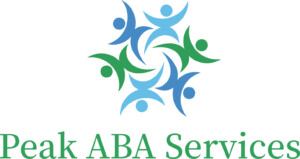
Improving communication and language skills in children with autism is a common priority for parents or guardians. For many children with autism, communication deficits are the most pronounced symptom of autism. ABA therapists target improved communication and language skills as important goals for the early learners
Communication and language deficits look different for every child. Some may be completely non-verbal, while others’ speech may be rigid or involve repeating words but without the ability to have meaningful conversations.
Whatever the communication or language deficit may look like, ABA therapy teaches communication and verbal language skills to children with autism. More than 20 years of research from behavior analytic journals has documented the success of ABA techniques and procedures in increasing language skills.
Communication and language skills that improve with ABA therapy include:
- Requesting desired items.
- Naming or describing items in the environment.
- Receptive language such as following instructions.
- Using alternative modes of communication if needed (e.g., sign language, communication devices).
- Reading sight words.
- Engaging in appropriate social communication with peers.
As language skills develop through ABA therapy, noticeable decreases in challenging behaviors (like tantrums) tend to occur as the child is now better able to communicate with those around them.
Speech and Language Therapy for Autism in Brampton: Helping Children Achieve Milestones – Peak ABA Services Inc.
Speech and language development plays a vital role in a child’s growth, especially for children with autism. At Peak ABA Services Inc., we understand that each child’s journey is unique. Our Speech and Language Therapy for Autism in Brampton is designed to address the specific needs of children with autism, focusing on improving communication skills and helping them reach key milestones.
Functional Language Skills in Brampton
Developing functional language skills in Brampton is essential for children with autism to effectively communicate in everyday life. Our therapists work closely with each child to improve their ability to express needs, interact socially, and understand verbal and non-verbal cues. These skills help children connect with others, whether at school, at home, or in the community.
Speech Therapy in Brampton
At Peak ABA Services Inc., we provide comprehensive speech therapy in Brampton for children on the autism spectrum. Our speech therapists are skilled at addressing a wide range of communication challenges, including speech clarity, language comprehension, social communication, and more.
If you are looking for a trusted partner in Brampton to support your child’s growth, Peak ABA Services Inc. is here to help. Let us guide your child through this important developmental stage, one milestone at a time.
Make Communication Easier for Your Child – Get Started Now!
Ready to support your child’s communication growth? Contact Peak ABA Services Inc. today to learn more about our Speech and Language Therapy services in Brampton. Our team is here to help your child develop the skills they need to succeed. Reach out to us and take the first step towards improving your child’s communication skills!


